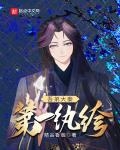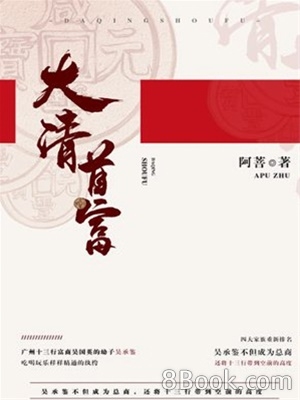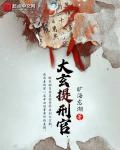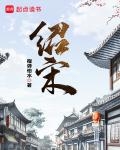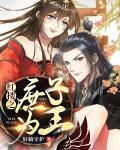Chapter 251: The Capital's Counterattack (X)
"Commander-in-chief, they are here." Following the report, three battalion commanders guarding Chenzhuang appeared at the door.
Huo Chong stood up to greet the three brave commanders. They defeated the Qing army that surrounded and attacked Chenzhuang, and when they interrogated the prisoners, they actually got shocking news. The commander of the Qing army's northern army, Aixinjueluo Basai, actually ordered the massacre of the village. The reason why such a tragedy did not happen was entirely because the three battalion commanders, despite their huge disadvantage in manpower, still stubbornly defended when they did not know that the enemy had issued such a cruel decision, and did not abandon the people and lead the army to break through.
Such warriors must be respected and rewarded.
Seeing Huo Chong approaching, the three battalion commanders did not show any joy on their faces, but lowered their heads in fear. The leader, Wang Weichang, said fearfully: "Commander-in-chief, we were wrong. Please punish us."
Huo Chong couldn't help but frowned, "Where did you go wrong?"
Wang Weichang quickly replied: "We should send all the women with bound feet to Linzi as soon as possible."
Huo Chong was stunned for a moment, and a surge of anger rushed to his chest. He looked around and saw that the only people who came in to compensate the three battalion commanders were guards.
He placed his hands on the shoulders of the three battalion commanders, "Lift your heads and stand up straight!"
The three of them managed to stand up straight, but they still kept their heads down, not daring to look at Huo Chong.
"Stand at attention!" Huo Chong shouted. The three battalion commanders subconsciously stood up straight and raised their heads.
"You performed very well in the battle. I thank you and thank you very much for protecting the people. You did not run away and you did not give up. You demonstrated the courage that our army should have. You did a great job!" Huo Chong loudly expressed his evaluation of the three people.
The three of them were stunned for a moment, and suddenly tears welled up in their eyes. Wang Weichang was the most excited, with tears streaming down his face and choking up.
Huo Chong ordered the guards to fetch a basin of water for the three men to wash their faces. Wang Weichang was already choking with sobs as he said, "Commander-in-chief, what Commander Yang said... is not like that."
"He must have said that I was against foot binding, didn't he?"
"Yes. He also scolded us..."
"I think you fought well. I've made it very clear to you. I also want to make it very clear to you that after this battle, I will implement a ban on foot binding. This is also what I said. Two different things."
Although Wang Weichang and the other two were moved to tears, they were puzzled. At this time, water was brought, Huo Chong asked them to wash their faces, and then asked the three to sit down and talk about the battle.
The three battalion commanders' memories were a bit confused when they recounted the battle process. It was obvious that all their attention was focused on dealing with the brutal battle at the time, and they had not had time to carefully sort out the battle itself.
Huo Chong tried to probe them several times as naturally as possible, but whenever he brought up the negative impact of foot binding on the overall migration of the masses, the three people's reactions were either that they seemed to have done something wrong, or that they felt that foot binding had nothing to do with them.
This made Huo Chong very unhappy.
However, most of the Han soldiers at this time were from poor families, so Huo Chong did not force them to accept too much. He could only tell them to have a good rest and not to worry. Then he let them go.
Just as the three battalion commanders left, the communicator brought the latest battle report from Jining. After reading for a few minutes, Huo Chong scratched his head and felt that his fingertips and nails were a little greasy. After solving the hairstyle problem, Huo Chong took the lead in growing a full head of hair. However, a new problem came into being. A bald head is easy to take care of. A towel and a basin of hot water can make fresh. Long hair requires special shampoo.
After wiping his fingertips on the handkerchief, Huo Chong pulled his thoughts back to the manuscript in front of him. Among the three people he trusted most at the moment, Lei Hu went to Linyi in the south for defense. Yang Wangfu led the troops in Linzi to fight against Aixinjueluo Basai. Qian Qing led the expeditionary force to Jining to fight against the main force of the Qing army.
In the battle report sent back by Qian Qing, he frankly admitted that he made some inappropriate decisions when facing the Qing army. He had rushed into the Qing army outside Jining City, but he did not expect that he could not catch the main force of the Qing army after several maneuvers. Instead, he allowed the Qing army of more than 100,000 to retreat easily in four parts, and lost a great opportunity to annihilate them all in one fell swoop.
After reading this, Huo Chong felt that these things were indeed amazing. In Huo Chong's eyes, the Qing army was a backward army, and it should have all the characteristics of a backward army. Qian Qing would not deceive Huo Chong and would tell the truth. So what was Qian Qing's purpose in saying this?
Huo Chong was confused. If Qian Qing didn't want to shirk responsibility, shouldn't he be chasing the Qing army and beating them up?
At this time, the guard came to report that Gao Pang had returned. Huo Chong left the report and let Gao Pang in. After Gao Pang came in, he immediately delivered the battle report on the Chenzhuang defense battle.
Huo Chong first glanced at the summary and was very satisfied to see that Gao Pang used the standard chronological order. Gao Pang, the top scholar, gave a briefing with excitement on his face, "General, our army has defeated the Qing army that was besieging Chenzhuang and is pursuing them. Because of the strong defense, the Qing army's baggage was captured by our army. Now the Qing army has been defeated. But will the Qing army cause destruction everywhere if they run around like this?"
"Haha. Only people who have never been hungry would say that." Huo Chong laughed.
"Starving... I was hungry too."
"Being hungry and being hungry are two different things. If you go hungry every now and then, can that be called being hungry? Being hungry means that you have not eaten for many days, and you don't know when you can eat in peace. It's really like having one meal before the next. Gao Pang, you have the energy to destroy everything. If you don't have any malicious intentions, you won't be hungry."
After saying this, Huo Chong had an idea. He handed Qian Qing's battle report to Gao Pang, "Take a look first, and then tell me why you think these things were written."
The room was temporarily quiet, with only the sound of flipping papers coming from time to time. The two of them finished reading the documents at about the same time, and Huo Chong said to Gao Pang, "What do you think?"
Gao Pang frowned slightly, "Commander-in-chief, General Qian seems... at a loss."
"Oh? Oh..." Huo Chong felt that he understood. Indeed, this was the feeling in Qian Qing's battle report.
While he was thinking, Gao Pang sincerely praised: "General, the commander of the Qing army is very powerful. According to historical records, there are not many generals who can easily retreat in front of the enemy. Incredible!"
"Oh! That's right!" Huo Chong was completely relieved. In all the previous battles, the Qing army rushed over like wild boars and confronted the Han army head-on. All the plans of the Han army were made based on this situation. I think Qian Qing also had the same plan, but he didn't expect the development of things to be beyond his imagination.
This uneasiness was probably similar to the feeling that the upper echelons of the Han regime had when they heard Huo Chong emphasize the need to ban foot binding, which was clearly beyond the understanding of the parties involved.
Huo Chong couldn't help but sighed, "Now I understand. Qian Qing has indeed never seen a famous general in the world. This time he has learned a lot."
"General, General Qian has 30,000 troops against more than 100,000 Qing troops, and the Qing commander is so...decisive. If the general is in charge, how would he fight?"
"If we meet the enemy head-on, we will attack them head-on. We will fight our way through. Our army's equipment and training are designed to deal with situations like this. We don't need to consider anything else. Alas... Qian Qing can't be blamed. Qian Qing's previous battles were all about mobilizing the enemy. She really has no experience of simply running into an enemy head-on like this. No wonder she feels confused."
Gao Pang was a little surprised, but thinking of Huo Chong's recent strange behavior, he didn't dare to say much. Unexpectedly, what he worried about came true. Huo Chong asked: "What do you think of foot binding? Do you think everyone will follow me to oppose foot binding?"
Gao Pang originally wanted to deal with it, but unexpectedly, he got impulsive and replied: "General, I thought these brothers thought differently from you. You think foot binding is wrong, and whoever supports foot binding is wrong. You brothers think that you are blamed by the general because you did something wrong, but foot binding itself is not a big deal."
Huo Chong thought for a moment and praised, "Mr. Zhuangyuan, this is a good idea."
Being praised by Huo Chong, Gao Pang's pressure was all relieved, and he couldn't help but continue: "What the governor wants is to follow the law and define good and evil in the world. This is no longer just the power of a heroic leader, but the status of Confucius. However, brothers just think that there are good people and bad people in the world. As long as the bad people are punished, the rest of the world will be good people. Since the court is full of righteous people, the world will naturally be peaceful."
After saying this, Gao Pang nervously watched Huo Chong's reaction. The agitation caused by ambition made Gao Pang's heart beat faster. This statement was like hitting everyone with one stick, but Gao Pang couldn't help it.
Before he passed the imperial examination, Gao Pang felt that he looked down on the peasants under Huo Chong. Now Gao Pang admits that these peasants are indeed extraordinary. In the process of recording the battle report, Gao Pang felt ashamed of his inferiority to these people's determination and tenacity. But precisely because he clearly understood the extraordinaryness of these people, Gao Pang saw their shortcomings more clearly.
The biggest difference between them and Gao Pang is that Gao Pang couldn't do it, but he knew why he couldn't do it, or how to do it. However, even if these people did it, they still didn't understand.
Should we say that it is easy to change the country but difficult to change their nature, or should we say that the people can be made to follow it but cannot be made to understand it?
Whatever the explanation, Gao Pang could find it and try to do it. But these people knew nothing except what they knew.
Just like Qian Qing's reaction to the unusual situation in the battle report, if it was a scholar like Huo Chong, and the opponent was a rare famous general or a foolish general, it probably would not affect Huo Chong's performance...
Thinking of this, Gao Pang wanted to verify it, so he asked: "General, if you were in charge of the battle of Jining, how would you fight?"
Huo Chong didn't even think about it and answered directly: "Each battalion should march in the direction and defeat the Qing army. The Qing army's idea is to win. Victory is won by fighting, not by the enemy's stupidity. As long as our army engages in battle with the Qing army, their true nature will be revealed. Qian Qing is still afraid that the situation will slip out of her control."
At this point, Huo Chong also sorted out his own judgment, "Gao Pang, since you understand the difficulties of banning foot binding, you should go to the Political Department and make ideological preparations in the early stage of the Political Department. You are right, so far, foot binding is not about the right or wrong of any one person. It is the foot binding itself that is wrong. After the war, you will be responsible for this matter."
"Yes." Gao Pang replied hesitantly.
Huo Chong heard Gao Pang's hesitation and said, "Don't think this is a trivial matter. If a trivial matter involves thousands of households, and involves all the families under our rule, would it be a trivial matter?"
After Gao Pang left, Huo Chong picked up a pen and started writing a letter to Qian Qing. He had an idea, so he wrote it down quickly, and then made some minor revisions after finishing it. Huo Chong added another paragraph, "If what I wrote doesn't make you feel like you do, just send me your own feelings. Don't worry, our army will win. You will definitely grow through this experience."
The Han regime was able to gain a relatively accurate understanding of the war situation through battle reports, especially to communicate with commanders and make adjustments.
The speed of information transmission in the capital was no slower than that in the Han regime, but there was no such heart-to-heart communication between Huo Chong and the commander.
Several official documents record the performance of the Qing army under the city of Jining. The evaluation of this action varies from person to person, and is written by the people who wrote these documents based on their own understanding.
After reading it, Old Thirteen said nothing, but Hong Zhou was angry. "Ertai actually retreated in front of the battlefield, and then he was afraid of the enemy and did not move forward. Is he worthy of the favor of the late emperor?"
Hearing such angry remarks, the other military ministers did not dare to speak. In the silence, the Prime Minister, Lao Shisi, spoke up: "Your Majesty, I think Ortai and Yue Zhongqi did a good job."
Hong Zhou obviously couldn't accept it, "Why would Fourteenth Uncle plead for them?"
"Your Majesty, if I were in charge, the movement of these hundreds of thousands of people would probably end up in a retreat. Facing the pursuit of the enemy army, Yue Zhongqi withdrew his rear troops in an orderly manner. Ortai was able to take advantage of this opportunity to withdraw the other three troops. It was really not easy. Even if he did not annihilate the enemy army, he did not lose any troops. He still besieged the enemy army under Jining City and was able to fight when he wanted. I think you should not blame them."
Hong Zhou was still very unhappy after hearing this, but he didn't say anything, instead he looked at Old Thirteen. Old Thirteen was in a dilemma. Before Old Fourteen spoke, he felt that Ortai was indeed doing something very strange. With Old Fourteen's analysis, Ortai and Yue Zhongqi's behavior made perfect sense.
After all, Huo Chong had defeated an army of 100,000 with only 20,000 troops. He must have had some basis for his boldness in entering the encirclement of the Qing army. If Ortai continued to attack fiercely, resulting in another great defeat for the 120,000 troops, that would be an unexpected disaster.
Of course, Old Thirteen really looked down on Ortai. With 120,000 men facing 30,000 men trapped in a tight encirclement, they dared not attack with all their forces. This was a four-fold difference in numbers. Even if two were replaced by one, they could still wipe out all of Huo Chong's elite troops. Was Ortai really so cowardly?
With such dissatisfaction, the Thirteenth Old Man asked the Minister of Revenue Sun Jiagan beside him, "Although you don't understand military affairs, what do you think of this matter?"
Sun Jiagan became the Grand Councilor because the Ministry of Revenue had to pay for the war. Hong Zhou wanted to hear what the Ministry of Revenue thought, which made Sun Jiagan a member of the Grand Council. Sun Jiagan thought for a while, "Your Majesty, I don't understand military affairs. I also think this matter is a bit strange. But I think what the Prime Minister said makes sense. Ortai has at least not made any mistakes now. The government troops can fight if they want to, and leave if they want to. The rebels are trapped in a tight siege, and they are the ones who will make mistakes."
Hong Zhou was silent. This matter was temporarily suppressed and not discussed. Hong Zhou talked about something else, "At present, all the governors and governors in the interior have submitted a petition to accuse Hong Xi of treason. However, the Eight Banners of Jingzhou have not submitted a petition. Who will handle this matter?"
This time, no one took the initiative to speak. In the 18th year of Emperor Kangxi's reign (1681 AD), Wu Sangui, the King of Pingxi, joined forces with Shang Kexi, the King of Pingnan, and Geng Jingzhong, the King of Jingnan, to rebel. Wu Sangui led his army from Yunnan and marched north. Hunan was soon captured, and the rebels captured Yueyang. This directly threatened Jingzhou, the important battleground on the north bank of the Yangtze River, and the rule of the Qing Dynasty was in jeopardy. At this critical moment, Emperor Kangxi ordered General Babul to lead 3,000 Manchurian cavalry to Jingzhou to defend it. From then on, Wu Sangui could no longer cross the Yangtze River until he was eliminated in Kunming three years later.
After the Sanfan Rebellion was quelled, the Qing Dynasty decided to set up a general's mansion in Jingzhou and station the Eight Banners soldiers. The Manchu and Mongolian Eight Banners lived in Jingzhou for more than two hundred years. From the initial 4,000 people, it grew to more than 20,000 people. At that time, the Eight Banners were divided into two types: one was the military Eight Banners, that is, the Eight Banners defending the city of Beijing; the other was the garrison Eight Banners, that is, the Eight Banners stationed in various places. The Eight Banners of Jingzhou belonged to the garrison Eight Banners. The Eight Banners stationed in Jingzhou are said to be the Manchu and Mongolian Eight Banners, but in fact they are mainly the Mongolian Eight Banners. The so-called governors and governors within the pass refer to various places outside the Manchuria and Mongolia. The silence of the Eight Banners of Jingzhou actually represents a subtle attitude.
Old Thirteen wanted to say something, but he moved his lips and didn't know what to say.
The Eighth Prince was known as a wise king and had the support of famous Manchu families such as the Tonggiya clan. The deposed crown prince had strong support from famous families such as Mingzhu and Suo'etu.
Although these people had been attacked by Kangxi and Yongzheng, they were after all famous Manchu families, and it was impossible for Kangxi and Yongzheng to exterminate them all.
The Thirteenth Prince even thought that it might be a good thing to really wipe out these people. It was because when he left these people behind that he did not expect that the Eighth Prince, the mortal enemy of the deposed crown prince, would actually join forces, that created the current troublesome situation.
The number of Manchu nobles who supported the deposed crown prince and the eighth prince together exceeded half of the Manchu nobles. The area outside the Great Wall was not a good place, and the princes had always lived a hard life, and they never received a lot of rewards from the emperor in the capital.
After Yongzheng came to power, he frequently made all kinds of accusations, complaining that the Manchus were useless. When the Eighth Prince and the deposed prince joined forces, the entire Manchuria and Mongolia simply supported Hongxi. According to the news that the Thirteenth Prince had heard, the princes outside the Great Wall had not yet entered Beijing, overthrown Hongzhou, and supported Hongxi as emperor. But they really didn't want to be bullied by Beijing.
What these Manchu and Mongolian princes wanted was to live their own lives in the Manchu and Mongolian Shengjing court, and no longer be controlled by the Beijing court.
The Eight Banners of Jingzhou undoubtedly had similar ideas, at least that was their attitude. Perhaps they really believed that the imperial court in Beijing would not allow the Manchus to fight each other.
The problem is that their view is actually correct. They can't just leave Huo Chong, the great threat, unsolved, and fight the Manchus to a bloody battle. Hong Zhou in the capital was doing his best to deal with Huo Chong, and had no time to spare to deal with Shengjing.
However, leaving them alone was not a solution. After a long silence, Hong Zhou spoke up, "What do you think if we let the Eight Banners of Jingzhou send people to persuade Hong Xi to surrender?"
Old Thirteen's eyes lit up, "Your Majesty is wise!"

